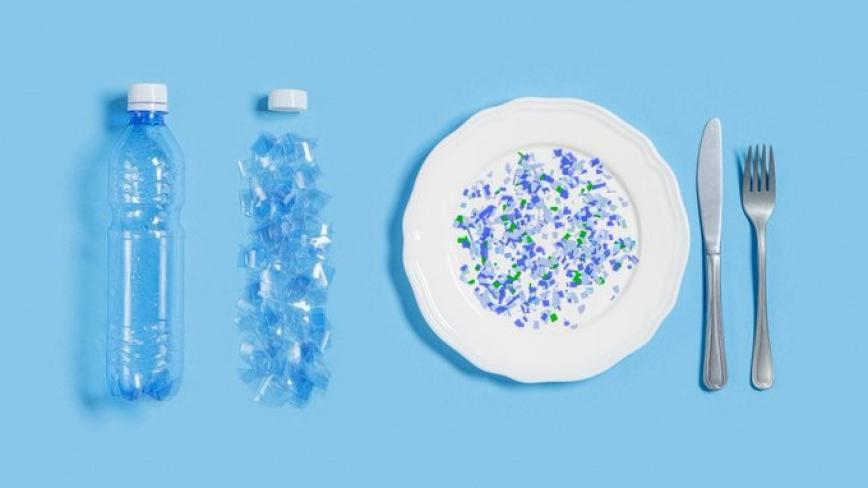Microplastics have been accumulating in the environment for decades leading up to the discovery of these tiny fragments throughout the environment and even in our bodies. The particles come from more than plastic packaging: they’re also the result of personal care products, synthetic clothing and more, accumulating in the environment as those products are used or discarded to break down in landfills.
Given the relatively recent documentation of microplastics’ presence, the task of quantifying and understanding the health effects of these particles has never been more vital. A new report produced for the California State legislature summarizes evidence from animal studies that exposure to microplastics can adversely affect fertility and cause biological changes that signal an increased risk of cancer—especially digestive cancers. Produced by a multidisciplinary team of experts collaborating across multiple University of California campuses, the report’s findings indicate microplastics may harm respiratory health, as well.
In addition to the health effects of microplastics, the report catalogued national, regional and international policies that have been crafted to reduce or mitigate the proliferation of these materials. Although microplastics are described as “ubiquitous,” the policies governing their presence are not. More policies have been put in place for microbeads in personal care products, while fewer policies exist for other sources of the particles such as microfibers, road tire fragments, and the breakdown of larger plastic items.
“As industries and governments work to reduce the presence of microplastics, the fact remains that we will be coping with the effects of these pervasive particles for years to come,” said California State Policy Evidence Consortium (CalSPEC) Co-director Richard Kravitz, M.D., MSPH, distinguished professor, UC Davis Department of Internal Medicine and director, UC Center Sacramento. “The CalSPEC microplastics report was developed to inform California legislators’ decision making for the benefit of the communities they serve. We hope this collaboration promotes important public dialogue on issues important to all Californians.”
Experts from the UCSF Program on Reproductive Health and the Environment (PRHE), UC Davis Center for Healthcare Policy and Research, and the UC Berkeley Goldman School of Public Policy collaborated on the report, “Microplastics Occurrence, Health Effects, and Mitigation Policies: An Evidence Review for the California State Legislature,” which was prepared at the request of the California Senate Committee on Environmental Quality and the Assembly Committee on Natural Resources.
CalSPEC gathers experts across the UC system to answer policy questions of interest to the State legislature with non-partisan, evidence-driven reports. Reports summarize evidence from systematic reviews of literature and policies relating to a specific topic selected by legislative committees. The CalSPEC team is led by UC Center Sacramento and includes scientists and experts from UC Berkeley, UC Davis, UC Riverside, UC San Diego and UCSF. UC Center Sacramento provides experiential education in public policy and politics to students at UC’s nine undergraduate campuses and assists UC researchers in sharing their policy-relevant findings with State government.

